 W
WAn abstract strategy game is a strategy game in which the theme is not important to the experience of playing. Many of the world's classic board games fit into this category, including: Chess, Xiangqi, Shogi, Go, Checkers and Draughts, Reversi, Nine men's morris, and most Mancala variants, as do modern games such as Dameo, Hive, Quoridor, and YINSH.
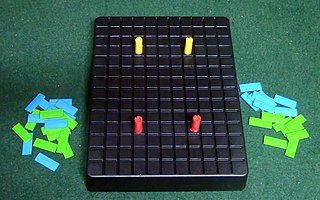 W
WBlockade is a strategy board game for two players with the motto "beat the barrier". It's played on a board with an 11x14 grid of spaces, barriers and 2 mobile playing pieces per player. The object of the game is to maneuver ones pieces around barriers and into the opponents starting spaces. The game is long out of production.
 W
WBulls and Cows is an old code-breaking mind or paper and pencil game for two or more players, predating the commercially marketed board game Mastermind.
 W
WCacho Alalay is a popular dice game from Latin America. It is similar to Yahtzee/Yatzy. The purpose of the game is to roll five dice and score points from their combinations. The dice are rolled from a leather cup.
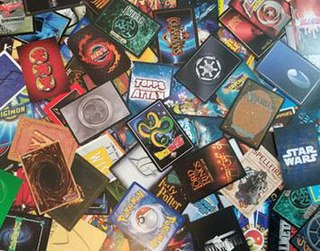 W
WA collectible card game (CCG), also called a trading card game (TCG) among other names, is a type of card game that mixes strategic deck building elements with features of trading cards, introduced with Magic: The Gathering in 1993.
 W
WContract bridge, or simply bridge, is a trick-taking card game using a standard 52-card deck. In its basic format, it is played by four players in two competing partnerships, with partners sitting opposite each other around a table. Millions of people play bridge worldwide in clubs, tournaments, online and with friends at home, making it one of the world's most popular card games, particularly among seniors. The World Bridge Federation (WBF) is the governing body for international competitive bridge, with numerous other bodies governing bridge at the regional level.
 W
WDownfall is a two-player game for players aged 7 and older, first marketed by the Milton Bradley Company in 1970.
 W
WEvo: The Last Gasp of the Dinosaurs is a German-style board game for three to five players, designed by Philippe Keyaerts and published by Eurogames. The game won the GAMES Magazine award for Game of the year 2002. It was nominated for the Origins Award for Best Graphic Presentation of a Board Game 2000. In 2004 it was nominated for the Hra Roku. The game went out of print in 2007, and a second edition was released in 2011.
 W
WFinchley Central is a mind game in which two players take turns naming stations in the London Underground. The first person to name Finchley Central is the winner. Of course, the first player could say "Finchley Central" straight away, but as maths professor Jonathan Partington notes, An opening move of "Finchley Central" is too much of a cheat, and you might wish to start with, say, Liverpool Street, when, assuming that your opponent isn't rude enough to reply with Finchley Central, leaves you with a mate on your second move.
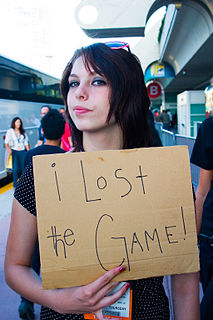 W
WThe Game is a mental game where the objective is to avoid thinking about The Game itself. Thinking about The Game constitutes a loss, which must be announced each time it occurs. It is impossible to win most versions of The Game. Depending on the variation of The Game, the whole world, or all those aware of the game, are playing it all the time. Tactics have been developed to increase the number of people aware of The Game and thereby increase the number of losses.
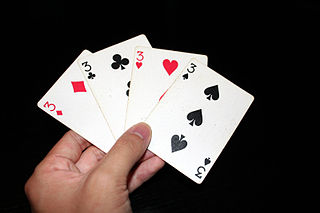 W
WGin rummy, or simply gin, is a two-player card game variant of rummy. It has enjoyed widespread popularity as both a social and a gambling game, especially during the mid twentieth century, and remains today one of the most widely-played two-player card games.
 W
WGoofspiel is a card game for two or more players. It was invented by Merrill Flood while at Princeton University in the 1930s, and Alex Randolph describes a similar game as having been popular with the 5th Indian Army during the Second World War.
 W
WMagic: The Gathering is a tabletop and digital collectible card game created by Richard Garfield. Released in 1993 by Wizards of the Coast, Magic was the first trading card game and had approximately thirty-five million players as of December 2018, and over twenty billion Magic cards were produced in the period from 2008 to 2016, during which time it grew in popularity.
 W
WMastermind or Master Mind is a code-breaking game for two players. The modern game with pegs was invented in 1970 by Mordecai Meirowitz, an Israeli postmaster and telecommunications expert. It resembles an earlier pencil and paper game called Bulls and Cows that may date back a century.
 W
WMental calculation consists of arithmetical calculations using only the human brain, with no help from any supplies or devices such as a calculator. People may use mental calculation when computing tools are not available, when it is faster than other means of calculation, or even in a competitive context. Mental calculation often involves the use of specific techniques devised for specific types of problems. People with unusually high ability to perform mental calculations are called mental calculators or lightning calculators.
 W
WA mind map is a diagram used to visually organize information. A mind map is hierarchical and shows relationships among pieces of the whole. It is often created around a single concept, drawn as an image in the center of a blank page, to which associated representations of ideas such as images, words and parts of words are added. Major ideas are connected directly to the central concept, and other ideas branch out from those major ideas.
 W
WMind Sports South Africa (MSSA) is recognised by Act of Parliament as the national controlling body for mind sports in South Africa.
 W
WThe Mind Sports Olympiad (MSO) is an annual international multi-disciplined competition and festival for games of mental skill and mind sports. The inaugural event was held in 1997 in London with £100,000 prize fund and was described as possibly the biggest games festival ever held.
 W
WPoker is a family of card games in which players wager over which hand is best according to that specific game's rules in ways similar to these rankings. While the earliest known form of the game was played with just 20 cards, today it is usually played with a standard deck, although countries where short packs are common, may play with 32, 40 or 48 cards. Thus poker games vary in deck configuration, the number of cards in play, the number dealt face up or face down, and the number shared by all players, but all have rules that involve one or more rounds of betting.
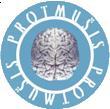 W
WProtmušis is a team pub quiz-type game that takes place in Vilnius, Lithuania. The organisers and participants of Protmušis are mainly students from various universities in Vilnius. All major universities of Vilnius are represented in Protmušis as well as the Kaunas University of Technology and Vytautas Magnus University of Kaunas and the Stockholm School of Economics in Riga; in addition, some people who had already graduated and those who are not yet studying in universities take or were taking part in the competition as well. Protmušis was organized for the first time in 1997. About 250 people have chosen to participate in the twelfth season of Protmušis, which started in March 2009.
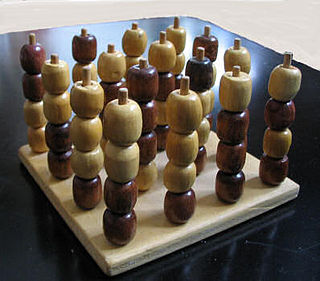 W
WScore Four is a "three dimensional" abstract strategy game, similar to Connect Four. It was first sold under the name "Score Four" by Funtastic in 1968. Lakeside issued 4 different versions in the 1970s. Later Hasbro sold the game as "Connect Four Advanced" in the UK.
 W
WSix Degrees of Kevin Bacon or Bacon's Law is a parlor game where players challenge each other to arbitrarily choose an actor and then connect them to another actor via a film that both actors have appeared in together, repeating this process to try and find the shortest path that ultimately leads to prolific American actor Kevin Bacon. It rests on the assumption that anyone involved in the Hollywood film industry can be linked through their film roles to Bacon within six steps. The game's name is a reference to "six degrees of separation", a concept which posits that any two people on Earth are six or fewer acquaintance links apart.
 W
WTong-its or Tongits is a 3 player rummy type of game that gained popularity in the 1990s in Luzon, the largest island of the Philippines.
 W
WTsoro is an ancient two-player mathematical strategy board game that has been played for over a thousand years. It has its roots in Zimbabwe and was first described in literature by J. B. Matthews in 1964. Tsoro belongs to the same class of African strategy board games collectively called Mancala, such as Oware, Bao, and Kalah.
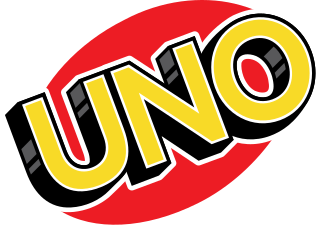 W
WUno is an American shedding-type card game that is played with a specially printed deck. The game's general principles put it into the crazy eights family of card games, and it is similar to the traditional European game mau-mau.
 W
WWhamageddon is a game played during the 24 days before Christmas Eve in which players try to go from December 1 to the end of Christmas Eve as per European celebrations on the 24th December without hearing "Last Christmas" by Wham! If the player hears the song between those days, they are out of the game and have to post "#Whamageddon" on social media to indicate that they have lost. The exceptions to this game are that the player can only listen to remixes and cover versions of the song. Whilst not encouraged on the website, but technically still a part of the rules, a player can send another player the song, or play it to them so that the other player loses the game, although Whamageddon is described as a survival game, as opposed to a battle royale game.
 W
WZendo is a game of inductive logic designed by Kory Heath in which one player creates a rule for structures ("koans") to follow, and the other players try to discover it by building and studying various koans which follow or break the rule. The first student to correctly state the rule wins.